How Exercise Changed My Life: "There are moments when I feel really broken but that makes me feel invincible"
Sabrina Pace Humphreys took on the Marathon des Sables at 40 after starting trail running in a period of intense post-natal depression, here she tells us how it happened
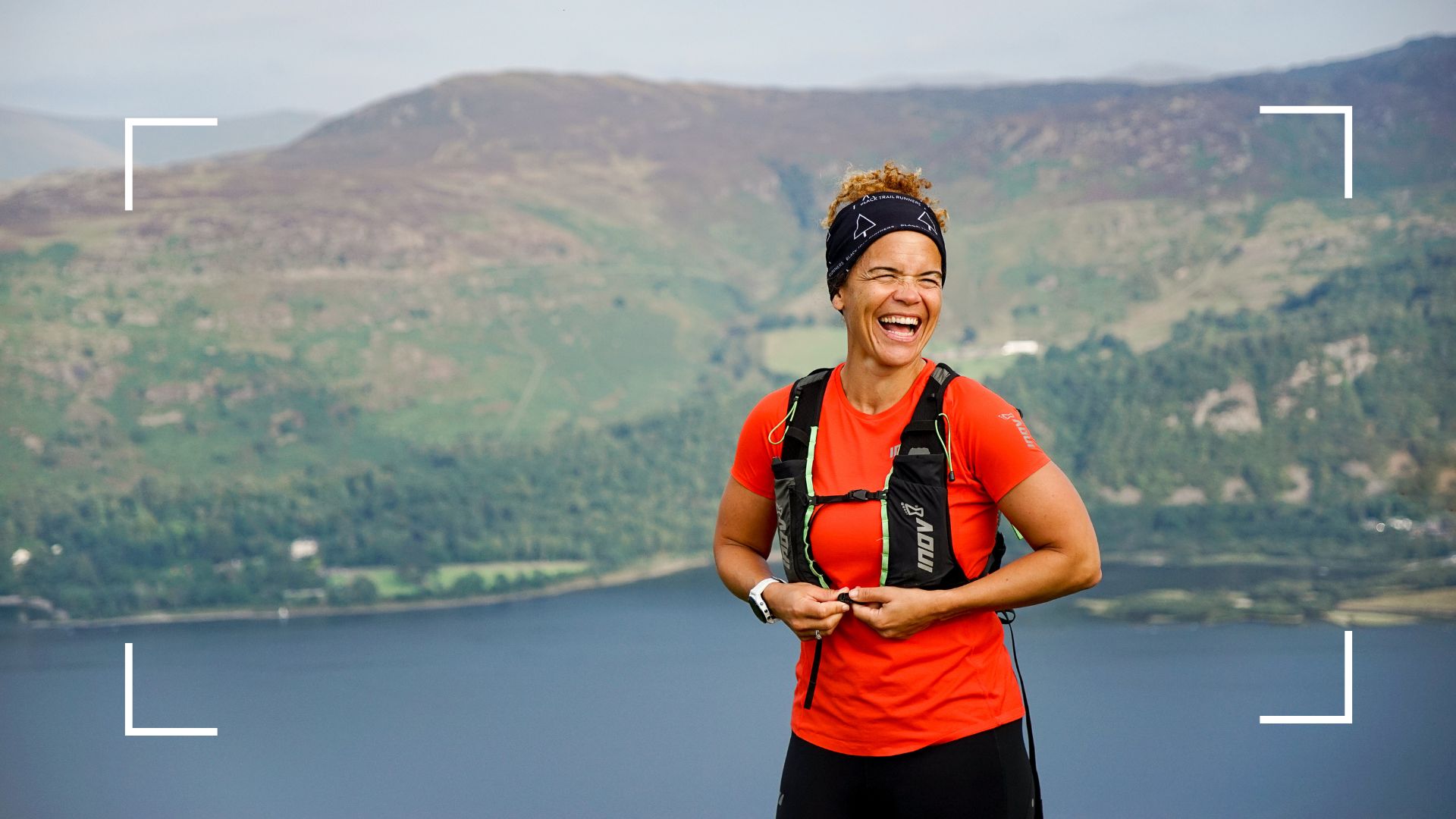

There are still so many barriers to be broken down when it comes to our sense of belonging in sport as women, but in woman&home's series, How Exercise Changed My Life, we meet those who are doing just that after changing their lives through sport after the age of 40, defying stereotypes and ageist narratives about what we are truly capable of at any age.
"The longest I've run to date is 268 miles (431km) non-stop and that was last summer. [I ran] the whole of the Pennine Way in the UK," Sabrina Pace Humphreys, 45-year-old mother, grandmother, ultra-marathoner, and BBC Survivor contestant, tells me. "Last year, I won my very first ultra-marathon. I never thought I would win a race but I was the first woman across the line."
The idea of running a marathon raises eyebrows for most people. Running anything more than the 26.2 miles (42km) distance is awe-inspiring, and that's just what an ultra marathon is. Defined as any distance more than a marathon, competitors and recreational runners often take on distances from 50km through to 160km and well above this in many cases.
The two ultramarathons completed by Sabrina in the last year alone are just two of several she's now run at 45 years old. Knowing this, you might think that she had been running her whole life, covering impressive distances from her tweens. Surely only then could someone build up this level of resilience, both mental and physical?
Cue my surprise when she told me this was so far from the case. Less than 10 years ago, the concept of running for more than 20 minutes wasn't just out of reach physically, it was worlds away from where she was mentally.
Stuck in a deep post-natal depression after the birth of her fourth child, Sabrina visited her doctor for a routine check-up. A doctor, she says, who saw what was going on and suggested that (along with medication and talking therapy) she try going for a run. Determined to try anything new that might work, she gave it a shot. "I was so mentally ill, if the doctor was telling me to try something, I was going to [do it]," she says.
On her first outing, dressed in an old decorating t-shirt, baggy jogging bottoms, and old-school Dunlops, Sabrina found what she'd later recognise as a trail close to her house. "I just wanted to be anywhere people couldn't see me," she says. "It was hard to breathe, it was hard to move, I didn't have the right kit, and for 14 minutes, I walked-shuffled. All I could focus on was my breathing, holding myself up, not falling into a canal, just moving forward in a way that got me home."
Sign up to our free daily email for the latest royal and entertainment news, interesting opinion, expert advice on styling and beauty trends, and no-nonsense guides to the health and wellness questions you want answered.
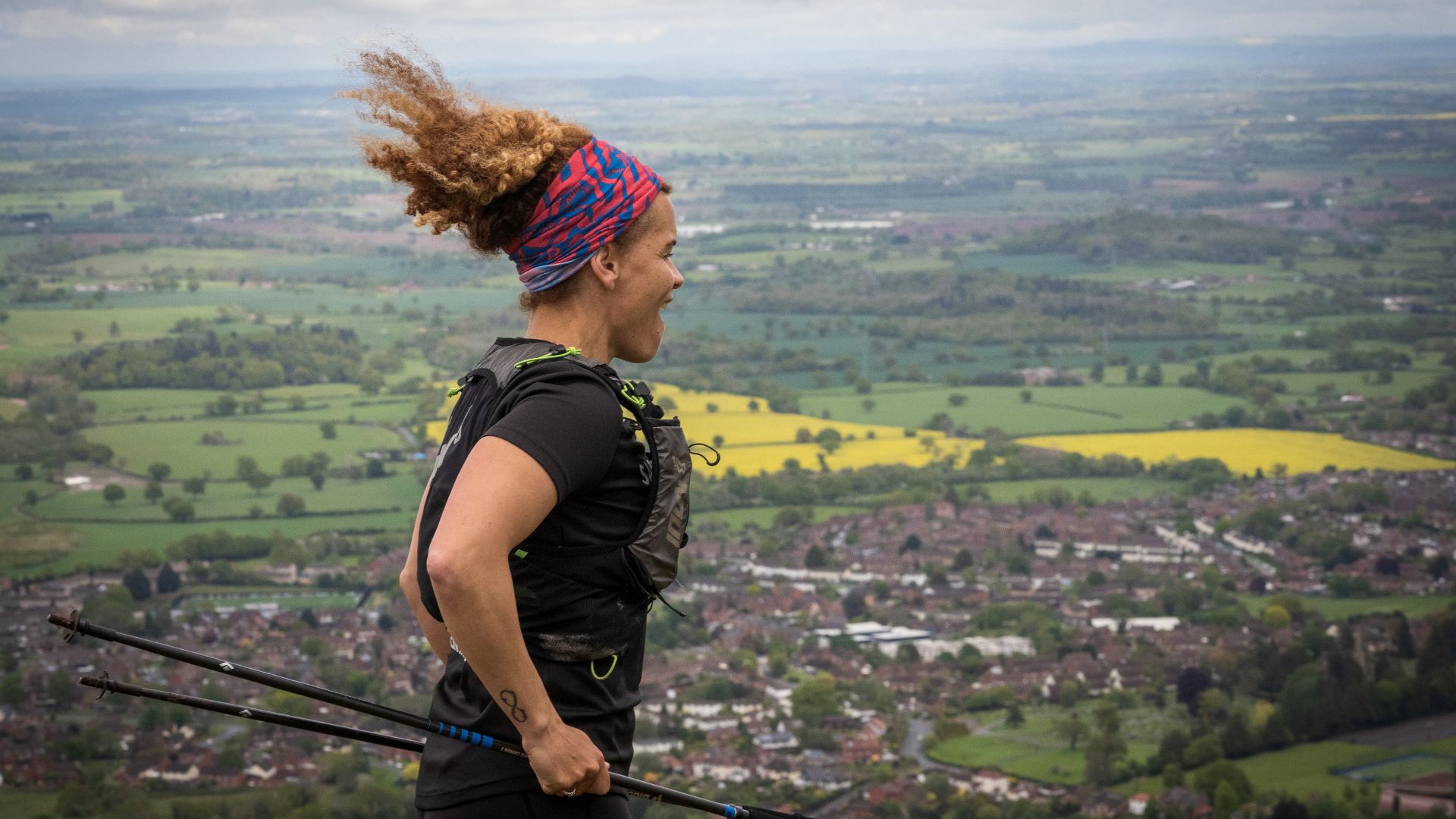
Sabrina started running in 2009 and since then, has completed several marathons and ultramarathons.
Falling in the door, Sabrina's husband asked if she was alright and though still far from being so, something was different. "I was hurting but throughout that whole time, I didn't have one thought about taking my own life. I didn't have one thought about not wanting to be here anymore or about how hopeless I felt, how useless I felt, how it would be better off if I wasn't around. And that's what kept me going back in those early days, and that's actually what keeps me going back now."
Looking back on it, it was a 14-minute self-described "shuffle" that would be life-changing. "Exercise has saved my life," she says. "That might sound really cliche but I wholeheartedly believe that. I was so ill after having my fourth child. I was so ill I didn't even know, I couldn't put a label on it because it didn't feel like any other periods of depression or high anxiety I'd had," she says. "Today, on the daily, running gives me space and time to move my body, to either just be in that moment thinking about my breathing or working through stuff on longer distances."
Within ten years, Sabrina went on to complete various half-marathons, marathons, and distances beyond this. In 2018, two years into recovery from alcoholism and in celebration of her 40th birthday, she found herself finishing the Marathon des Sables in the Sahara Desert - a 156 mile (254km) distance known as the "toughest footrace on earth" thanks to the terrain and weather conditions - as the 13th UK female, one of a handful of women of colour, and certainly only one of a handful of mothers of four children.
She was far from unscathed though. While traversing a narrow snowfield on the gruelling route, Sabrina lost her footing, tumbled off the almost-verticle edge, and was forced to cling on for dear life, screaming for help. "If I'd have dropped, I would have been seriously injured or I would have died," she says. "Five white men ran past me as if I wasn't there, as if I was invisible, as if they couldn't hear my screams. I thought that was it, I thought I was going to lose my life in a trail race."
The sixth man that came along stopped to help her. He didn't speak any English, she couldn't speak Italian, but he used all his strength to pull her onto the ledge. "It was such a changing experience for me in the sense that it took me right back to being unsafe outdoors," she says, recalling her intensely difficult time growing up in rural Gloucestershire in the 1980s, an area where she seldom saw other people of colour.
"I wasn't given the help that I should have been given and my lived experience tells me it was because I didn't necessarily look like somebody that they cared for or someone in their friendship circles, and that's my truth. That's my experience throughout my life. I told the organisers and nothing was done."
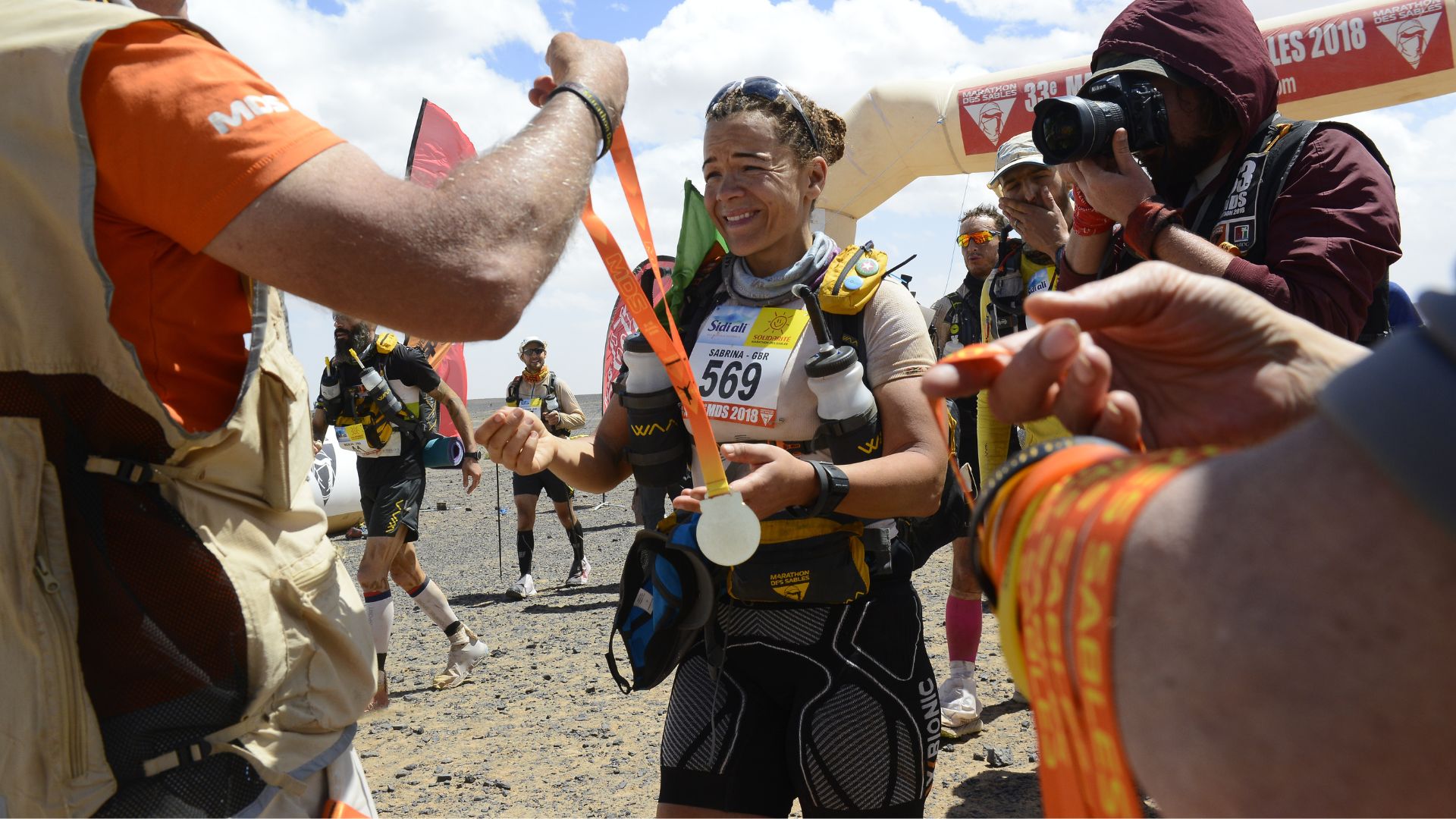
Sabrina was the 13th UK woman to cross the finish line of the Marathon Des Sables in 2018.
The gut-churning moment during the marathon and the rise of the Black Lives Matter movement after the deaths of Ahmaud Arbery, who was murdered while out running, and George Floyd in 2020 led to action. Determined to not have someone else go through what she did, Sabrina collaborated with several other runners to found Black Trail Runners, a community and campaigning charity that aims to increase the inclusion, participation, and representation of Black people in trail running.
"I'm a mum and a grandmother. If I don't try and do something, try and create or try and find community, something that makes people feel safe and works to create more opportunity for diversifying the outdoors, then what's the point of it all?"
In May last year, the charity held the world's most diverse trail running event - Black To The Trails. Per multiple reports of the event, 70% of runners were people of colour, where normally on average just 0.7% of those participating in UK trail events are Black, and 70% were women.
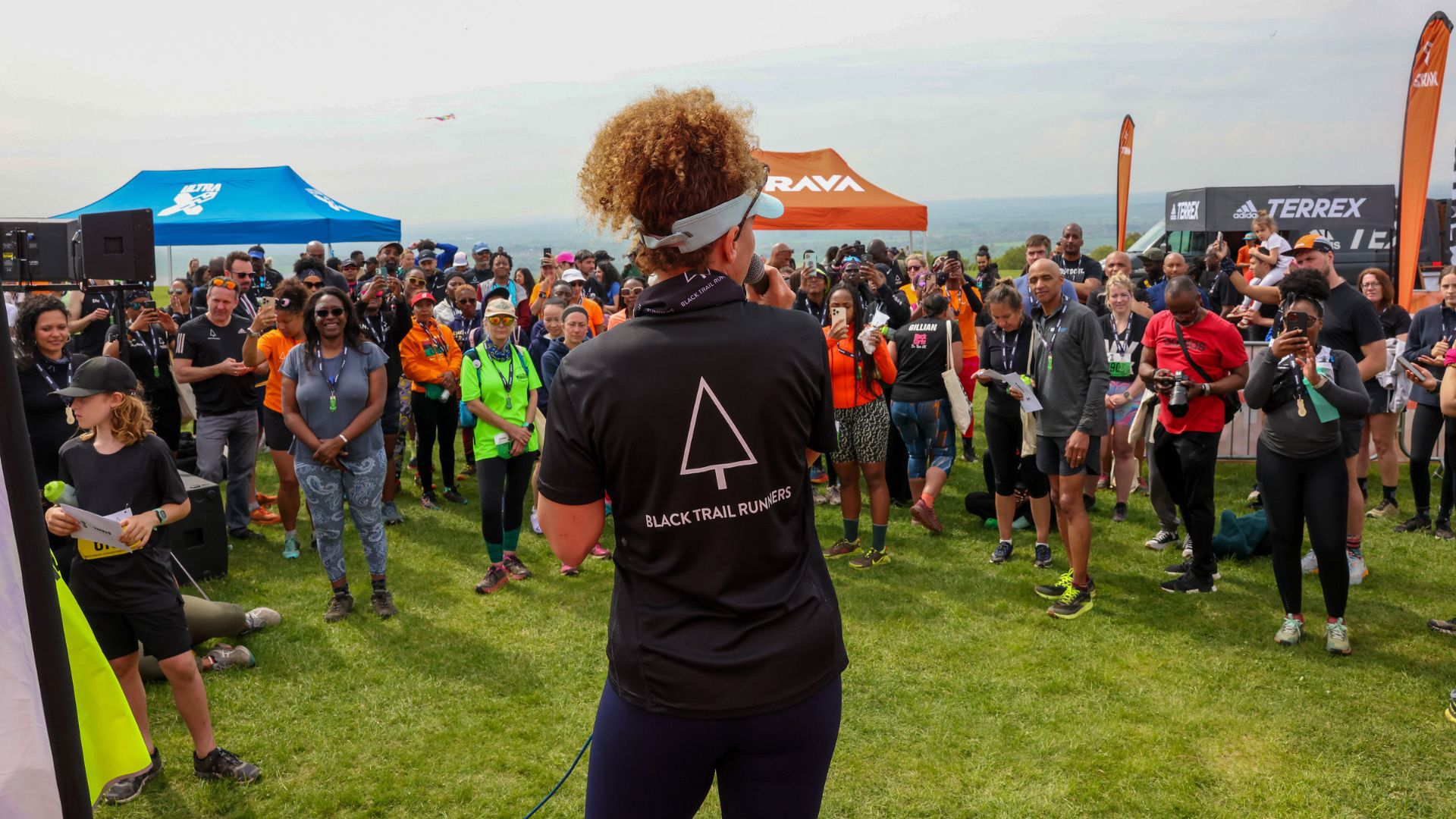
Together with other runners, Sabrina founded Black Trail Runners in 2020.
Now in 2023, Sabrina is approaching another new challenge, one that's changed her relationship with exercise once again.
"Menopause is a massive part of my journey right now," she says. "I went through years and years of training quite hard and not getting injured at all, but I've been dealing with recurrent tendonitis for the past few years. I didn't know that due to a drop in oestrogen, which is one of the hormones that makes collagen, a lot of women experience tendonitis issues. I had no idea, no one had ever told me," she says. "It's not just the physical menopause symptoms though, it's the moods, the hot sweats. It's the fact that my body feels like it runs two degrees higher than it ever used to."
Sabrina has had to find ways to work around the symptoms to continue to do what she loves best. "I've had to surround myself with experts who can help me deal with that but also nutrition, muscle-rebuilding protein, recovery, strength training, so that I can continue to move the way I want to move," she says. "Menopause has allowed me a deeper understanding of what works for me and what doesn't work for me, an understanding that I probably ignored in my 30s."
But it's worth it because, ultimately, Sabrina believes it's what she was made to do. "I feel that the older I get, the better at this stuff I'm getting. I come into my own when I am in charge of my own destiny, in races like that. I'm in charge of how I move, fast or slow, what I eat, and the care that I give myself. I think being a mother and a grandmother has given me a really unique set of skills that I can dig really, really deep," she says.
"I was made to be able to do these distances and do them and feel strong when I cross the finish line rather than be broken. Of course, there are moments when I feel really broken but that makes me feel invincible. I can do these races and then get up the next day and live my life. It makes me better in my professional life, in my social life, with my children, and with my grandchildren."
In fact, she adds, "A lot of women in their 40s, 50s, 60s, and 70s, are great long-distance runners because of the life skills that they have."
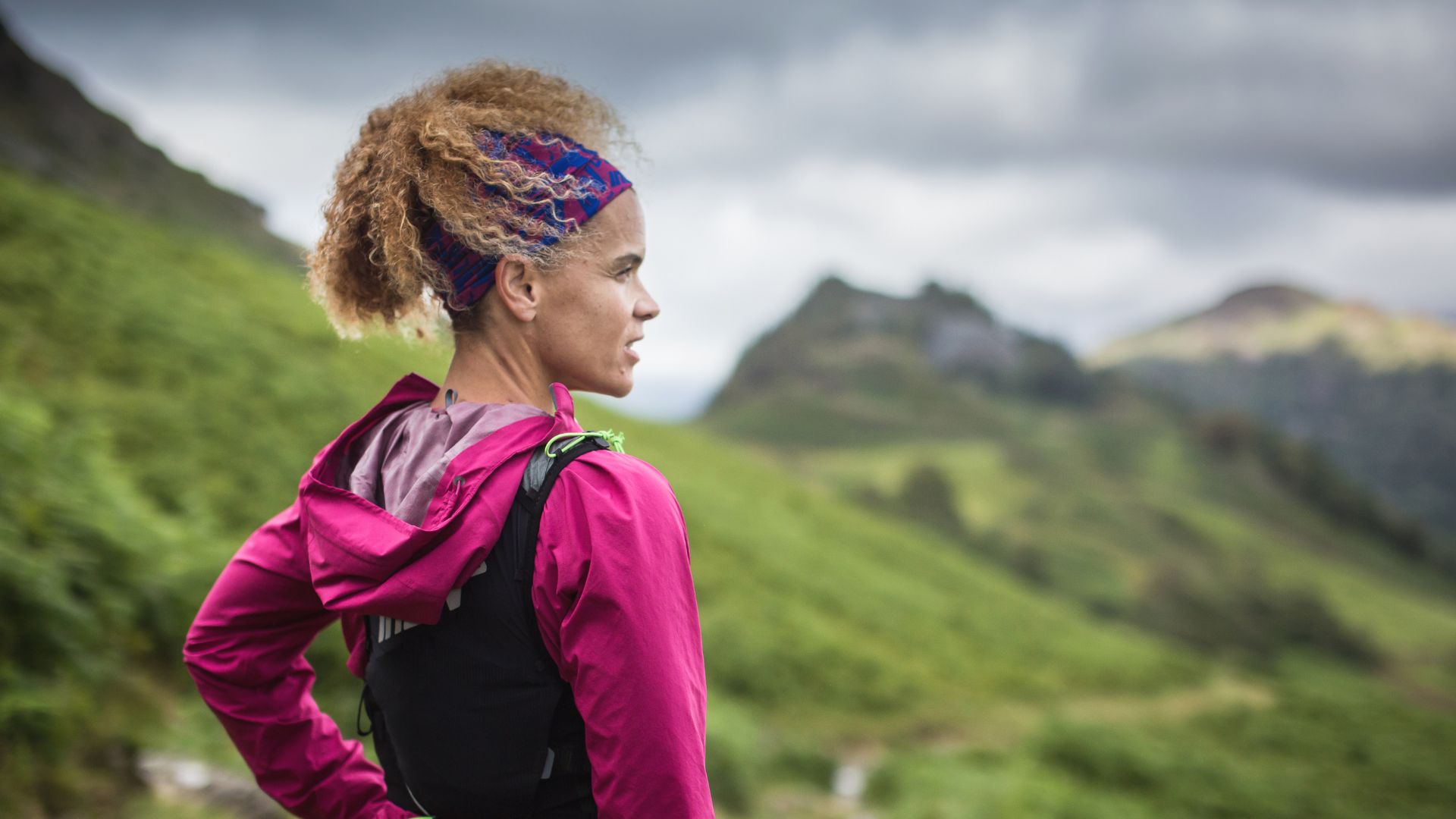
How to train for ultra running
If you're a regular runner and want to progress past a marathon, investing in a training plan - from a certified coach or one of the best running apps - is a good idea. You can also learn how to start running as a beginner if you're new to the sport by running 20 minutes a day or even less a couple of times a week.
Sabrina, who is also a certified UKA Run Coach, Level 3 Personal Trainer, and a run club organiser, also has the following advice for those looking to explore the benefits of running for both body and mind.
- Start where you are: "You do not need to go and run 5km. Even if you’re getting out for 20 minutes or even 10 minutes, walk run walk run. I always say start small. Small steps lead to big change," she says.
- Be kind to yourself: "It's not you against anyone else, that’s the beauty of running."
- Go out even when you don't want to: "Even on the days when life, work, menopause, feels all too much and you think that a run, or a walk run, isn't going to make you feel better, go. You’ll never regret going out."
- Have confidence: "Believe in yourself," says Sabrina. "There are even members of your own family who will question why you’re doing what you’re doing. As long as you’re doing it for you, any form of exercise - whether it’s running, cycling, swimming, skipping, spinning - is a good idea."

Grace Walsh is woman&home's Health Channel Editor, working across the areas of fitness, nutrition, sleep, mental health, relationships, and sex. She is also a qualified fitness instructor. In 2025, she will be taking on her third marathon in Brighton, completing her first ultra marathon, and qualifying as a certified personal trainer and nutrition coach.
A digital journalist with over seven years experience as a writer and editor for UK publications, Grace has covered (almost) everything in the world of health and wellbeing with bylines in Cosmopolitan, Red, The i Paper, GoodtoKnow, and more.